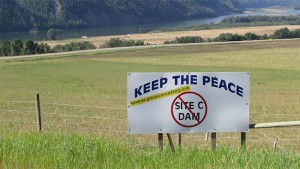First Nation people and the Canadian government have been in dispute for years over land issues, but at the same time both are trying to improve their relationship.
Recently, a group of First Nation chiefs urged the Canadian government to reject Site C, a BC Hydro’s hydroelectric mega-project that will cost $8 billion to construct. The project is to build a dam on the Peace River, which will damage farmland, disturb wildlife habitat, and affect First Nation practices.
Due to First Nation people’s intervention, BC Hydro would possibly suffer huge potential loss. I think the company should have planned more carefully on where it builds this project because it is important to understand the macro-environment. The Constitution Act in 1982 gave First Nation people the ownership of massive land properties. Therefore, knowing the fact that Canadian government always has the tendency to appease First Nation people to improve their relationship, BC Hydro should not cause issues between them and the First Nation group. In this case, BC Hydro should not plan a project near First Nation properties without First Nation people’s agreement. However, BC Hydro can try to improve the current situation. For example, the company can alter its original plan to decrease potential harm on the environment. Also, BC Hydro can offer the First Nation community a portion of its profit to make up for the lose it brought to the community. This time, BC Hydro cannot avoid losses but it learns how important it is to examine the macro-environment carefully.
Article link:
http://www.vancouversun.com/life/Premier+urges+cooperation+more+litigation+government+natives+reach+fork+road/10194776/story.html
http://www.vancouversun.com/news/First+Nation+chiefs+stage+Site+showdown/10215965/story.html
